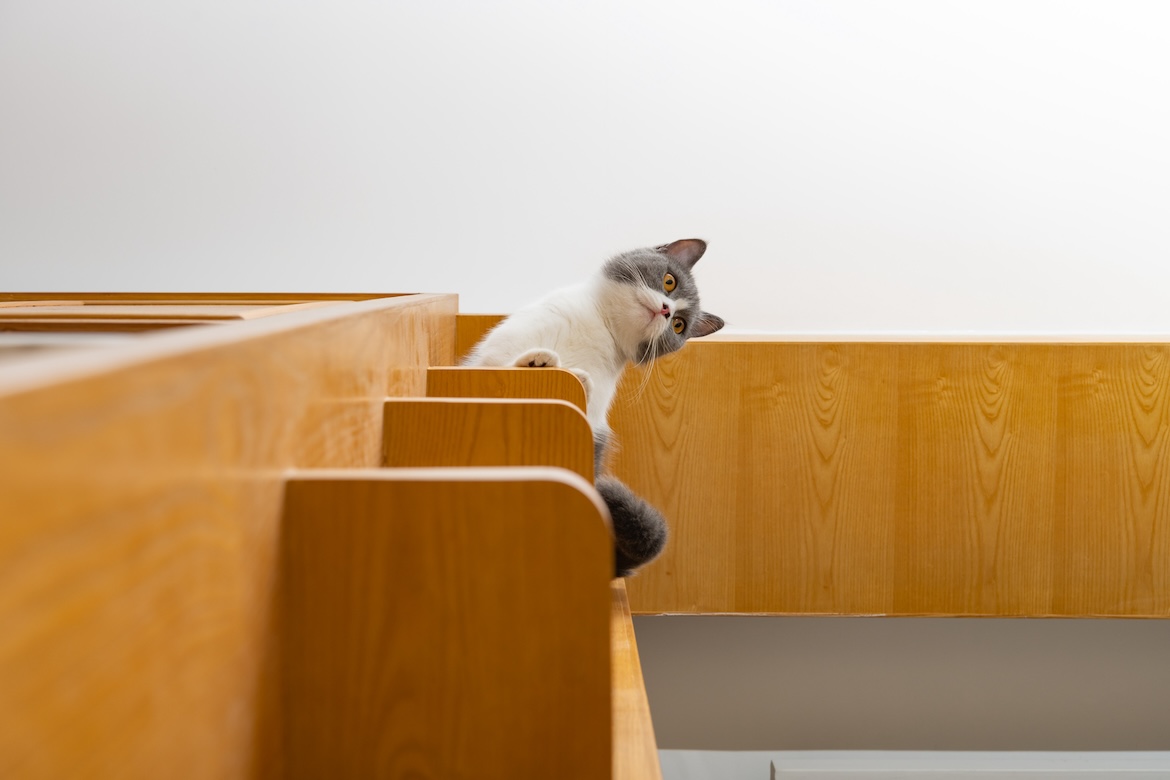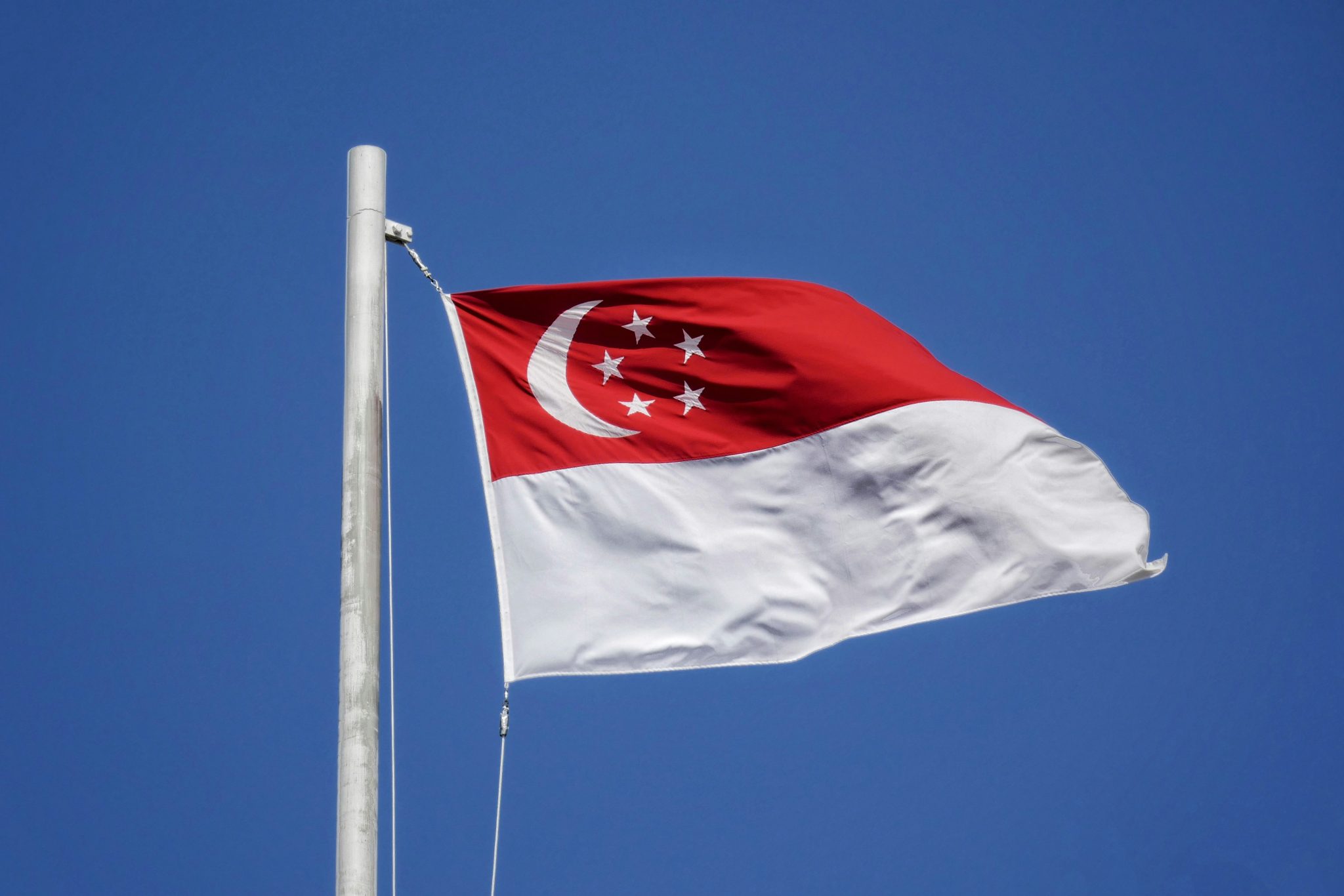From Africa to China, Dr Diarra Boubacar heals across continents
by Tan Huey Ying // August 24, 2018, 5:00 pm
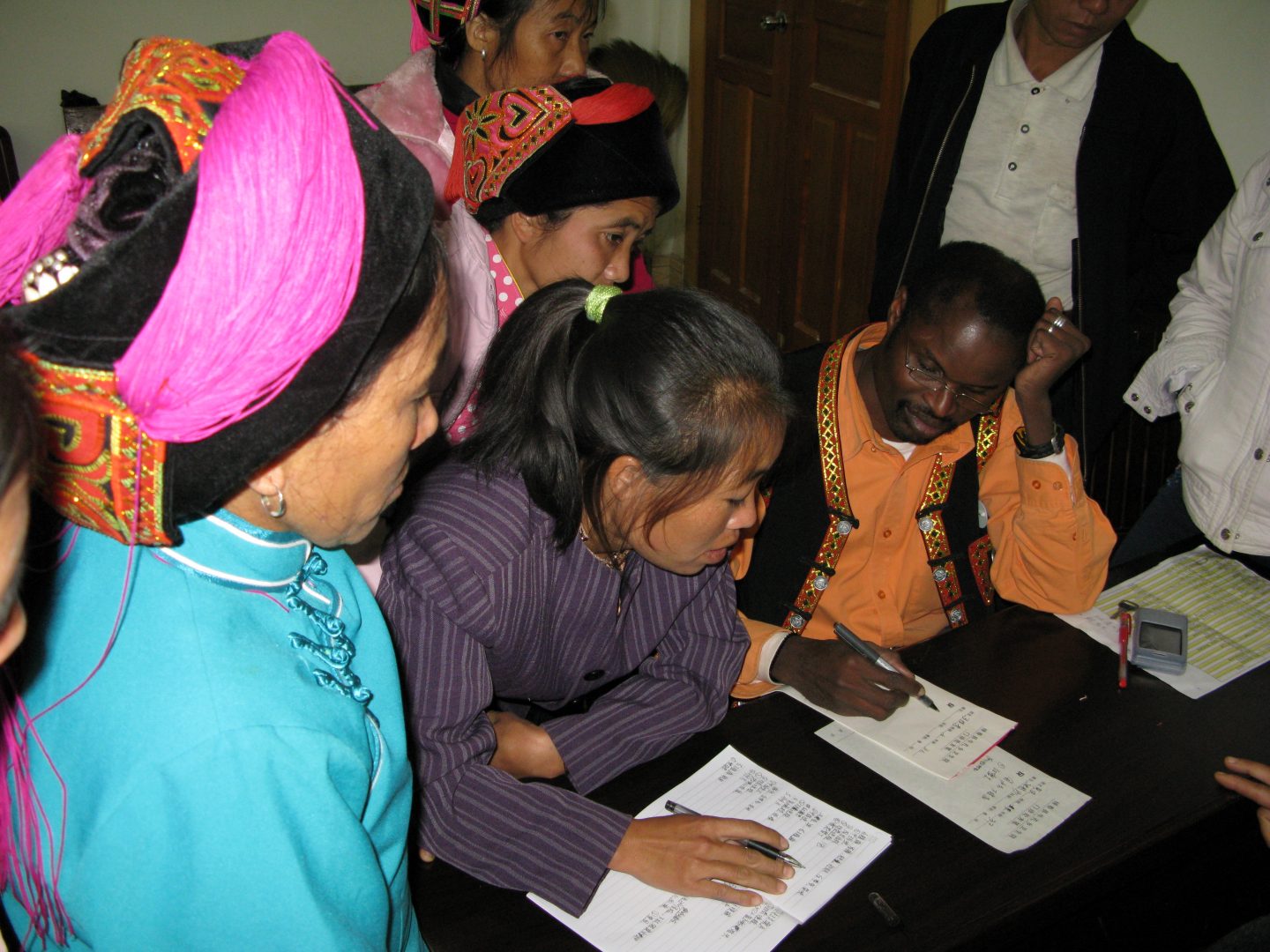
Dubbed "China's barefoot doctor" because of his extensive work amongst rural communities, Dr Diarra (seated) was awarded a Chinese Philanthropic Prize by the Chinese government in 2012. Photo courtesy of Dr Diarra Boubacar.
“My name is Diarra Boubacar and I come from Mali.”
A normal enough introduction. Except that the speaker is a West African man speaking perfect Mandarin, intonation and all.
Dr Diarra, 54, hails from Mali, West Africa, but has spent the last 30 years in China, where he ministers to rural villagers.
After three decades in the country, where he lives with his local Chinese wife and two children aged 10 and 19, he is fluent in both Mandarin and his native French, to the continued astonishment of villagers.
He is, quite possibly, the only doctor who has had to chase after a fleeing patient.
“This is dramatic – it was my first day on the job in Chengdu. A woman came in, but the moment she saw me, she slammed the door shut and ran away!” recounts the soft-spoken doctor with amusement.
“So I got up and ran after her. I found her at the nurse’s station where she was telling the nurse, ‘I came to see a zhongyi (TCM practitioner) but there is a foreigner in the room. And he is black!’”
People in shock do not filter their words for political correctness. Dr Diarra was unfazed.
“I told her that yes, I am definitely a certified zhongyi. And I promise you, if my treatment is not effective, I won’t charge you any fees.”
His treatment turned out to be so effective that her mother and older sister soon became his patients too.
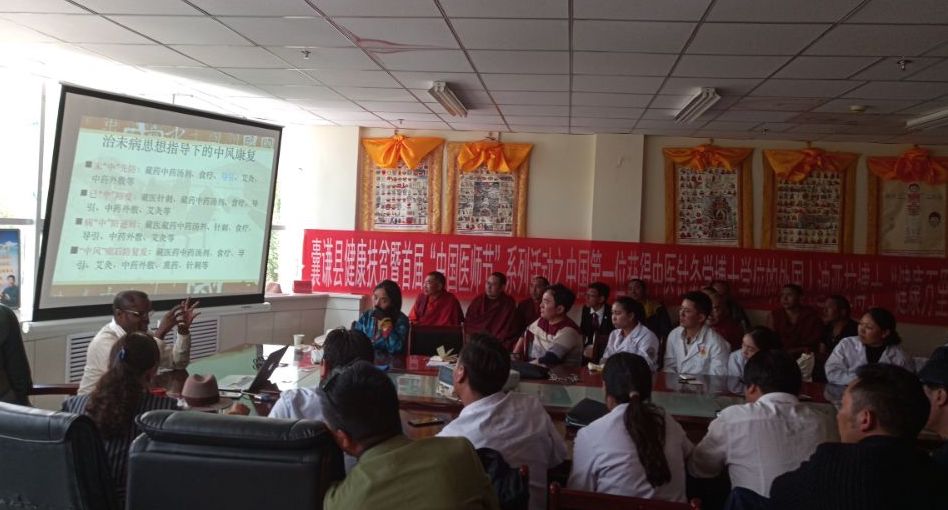
Dr Diarra conducts training for doctors in various provinces. Photo courtesy of Dr Diarra Boubacar.
Contrary to popular belief, Chinese-speaking Africans are not an uncommon sight in China. (Sino-African relations are strong – and growing.) But a dark-skinned TCM practitioner (zhongyi, 中医) is rare – rare enough to startle an unsuspecting patient.
Despite his patient’s surprise, Dr Diarra is actually a known and respected figure in China.
Dubbed “China’s barefoot doctor” because of his extensive work amongst rural communities, he was awarded a Chinese Philanthropic Prize (中华慈善奖) by the Chinese government in 2012 and has even been featured on China’s national media several times on television and in print.
As both a medical doctor and a TCM zhongyi, the senior consultant at Chengdu Xindu Chinese Medical Hospital works closely with Médecins Sans Frontières (Doctors Without Borders).
He trains village doctors – more than 4,000 to date – and engages in rural development projects in rural Yunnan.
A passage to China
It was not an easy journey by any means – first technically and then in gaining acceptance and credibility.
As a young medical graduate in Mali, Dr Diarra never imagined that he would end up as a TCM zhongyi in China.
But God had plans for him.
It started with a classmate’s chance encounter with an announcement on the noticeboard outside their university administration office.
“This classmate, he loves soccer; he rarely, if ever, goes past the admin office. But on that particular evening, he did.”
Dr Diarra happened to cross paths with this classmate on the way home, upon which “my classmate mentioned this notice for scholarship application to China. My interest was piqued”.
“Even if you lack faith and foresight, God is guiding you.”
As one of the top university graduates in Mali, Dr Diarra had already been offered a scholarship to Russia to further his studies. (Mali and Russia had strong ties during the Soviet Union era.)
Despite the prestige, Dr Diarra felt disinterested and declined the offer. But as he listened to his classmate talk about the Chinese scholarship, for some reason his interest grew.
The next morning, Dr Diarra made his way to the office and found out that the deadline for submissions was at noon that day. Hastily putting together his application, he hurried to purchase the official tax-stamp that the Malian government required for all packages sent to the government.
“You need it in the exact value – not a cent more, not a cent less,” he explains. “But this was the end of a week of scholarship applications, and the school did not have any more on hand.”
In those few hours, Dr Diarra tried all means and methods of getting hold of that one elusive tax-stamp.
But it was to no avail.
Despondent, Dr Diarra threw his application aside and headed over to his pastor’s house. As he recounted the events of the last 24 hours, Dr Diarra’s pastor, who had been listening intently, interrupted him with an open-ended: “Wait here.”
The pastor ducked into a room and emerged holding a small stamp: “This morning, before my devotion, I noticed this on my Bible.”
Dr Diarra was floored. It was the exact stamp he needed – in just the right amount.
There was no time to waste. He rushed home to get his application and raced to school. At the gate, his principal was just about to leave.
Dr Diarra submitted his scholarship to his principal a few minutes before the deadline.
Guiding light
On hindsight, Dr Diarra says that the work of God’s guiding hand is obvious.
“No matter what, God is in control. It is impossible to know how your life will turn out. But even if you lack faith and foresight, God is guiding you.”
In 1986, Dr Diarra started his studies in Chinese medicine and the Chinese language. It was a struggle – and he says that he failed several times.
Chinese medicine requires the extensive study of many ancient medical texts. They use such archaic language that even native Chinese speakers struggle with them.
But he managed to overcome these with help from teachers and classmates.
After five years of basic study and three years of graduate school, Dr Diarra completed his studies. His achievement is unprecedented – he is the first foreigner to complete a PhD in Chinese medicine.
“I came to China with nothing. But God has given me more than I ever imagined.”
He landed in China with only a calculator, a book on Western medicine and the jacket he was wearing.
The Malian government had given every scholarship student a fixed sum of money to prepare for their travel.
“But I was naive. I thought I didn’t need the money; I gave it all to my brother. I had no money and I didn’t bring anything. The moment I realised how penniless I was, I cried.”
But then he remembered the prophetic word he had received from an embassy staff before he left Mali: “In China, you will have everything you need.”
Today Dr Diarra recognises with wonder that this prophecy has since been fulfilled.
“I came to China with nothing. But now, I have friends and family. God has given me more than I ever imagined.”
Honouring Creation
Some time into his career, Dr Diarra had his convictions challenged.
He was a well-paid consultant in a reputable hospital and his prospects were good. On average, he was seeing almost 80 patients a day.
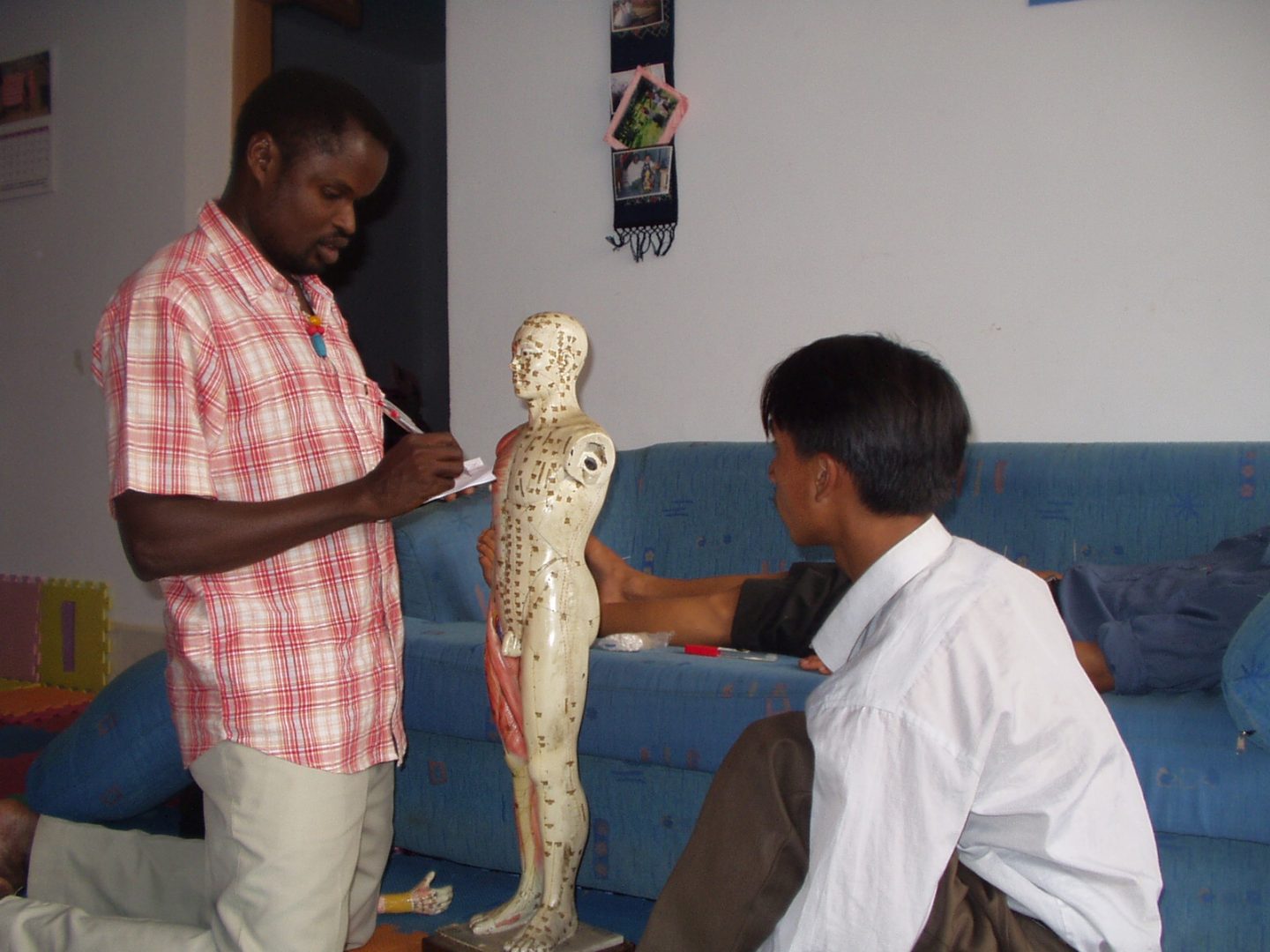
In the 1960s, Chinese medicine was modernised. Medical theories and classical TCM texts were condensed systematically into textbooks, incorporating Western knowledge of anatomy. Photo courtesy of Dr Diarra Boubacar.
Before long, he was approached by his superior, who told him: “You have the most patients, but your bonus is the smallest.”
What he meant was: Prescribe more medicine, you can make more money.
It was not an inaccurate observation. Dr Diarra remembers his bonus then was only 172 yuan (S$34.50); other doctors were getting almost 4,000-yuan (S$802) bonuses.
Dr Diarra refused, believing that he needed to treat his patients in the most cost-effective way that would benefit them.
The third time his superior approached him, Dr Diarra resigned.
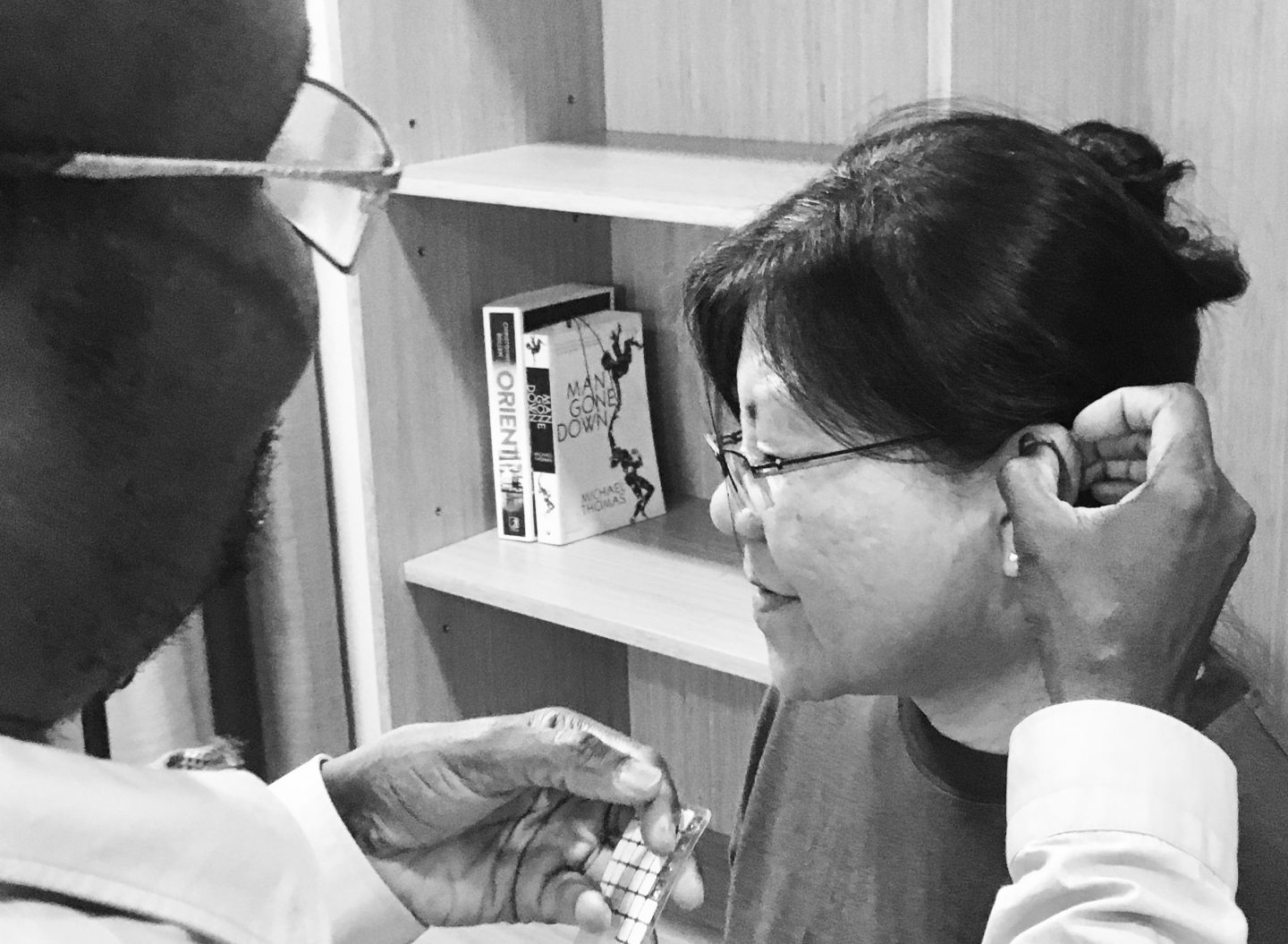
Treating a woman who suffers from constant headaches. Photo by Tan Huey Ying.
As a doctor trained in both Western and Chinese medicine, some might wonder if he is bothered by the crevasse of differences between the two medical philosophies.
But a proper understanding of culture and the discipline within that culture undergirds Dr Diarra’s convictions.
His is a service borne out of the desire to love others with the love of God.
Referencing Matthew 7:18, he says: “Pears do not grow on grapevines and grapes do not grow on pear trees. We cannot take things out of context, nor can we pass judgement on God’s creation with perspectives that are not of God.
“TCM includes the use of herbs in its treatment – and these herbs have been created by God Himself. Creation is good because God is good and He called it good. (Genesis 1:31)
“It boils down to how we use these resources that God has given us – that is what determines whether they are good or bad.”
Serving one and all
Today, as a respected doctor, Dr Diarra uses his skills to serve villagers – specifically, the rural Chinese in Yunnan, China.
He also spends much of his time conducting training – teaching villagers simple healthcare practices and training younger doctors.
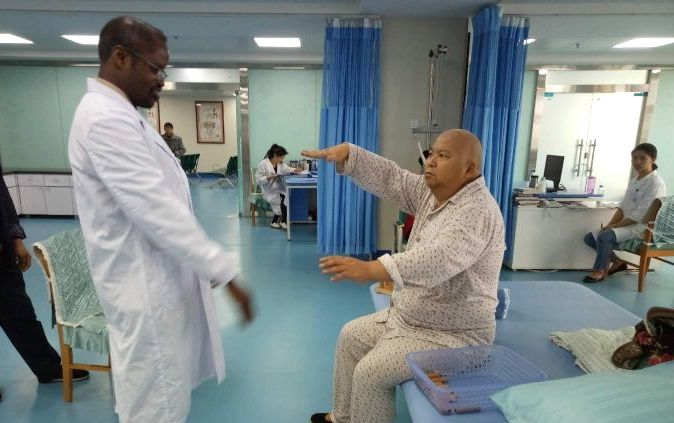
“We should not discriminate but, rather, treat everyone equally well to the best of our abilities,” believes Dr Diarra. Photo courtesy of Dr Diarra Boubacar.
Dr Diarra is also involved in development work in these rural areas. He helps run and administer projects on leprosy and AIDS care, as well as projects looking into increasing access to safe drinking water.
“I am a doctor, but first and foremost, I am a follower of Christ.”
His is a service borne out of the desire to love others with the love of God.
“When I am in China, I use this love to treat my patients and help them. But I will also do this in Mali – it does not matter where I am.
“We should not discriminate but, rather, treat everyone equally well to the best of our abilities. We are all created by God; there is no difference.”
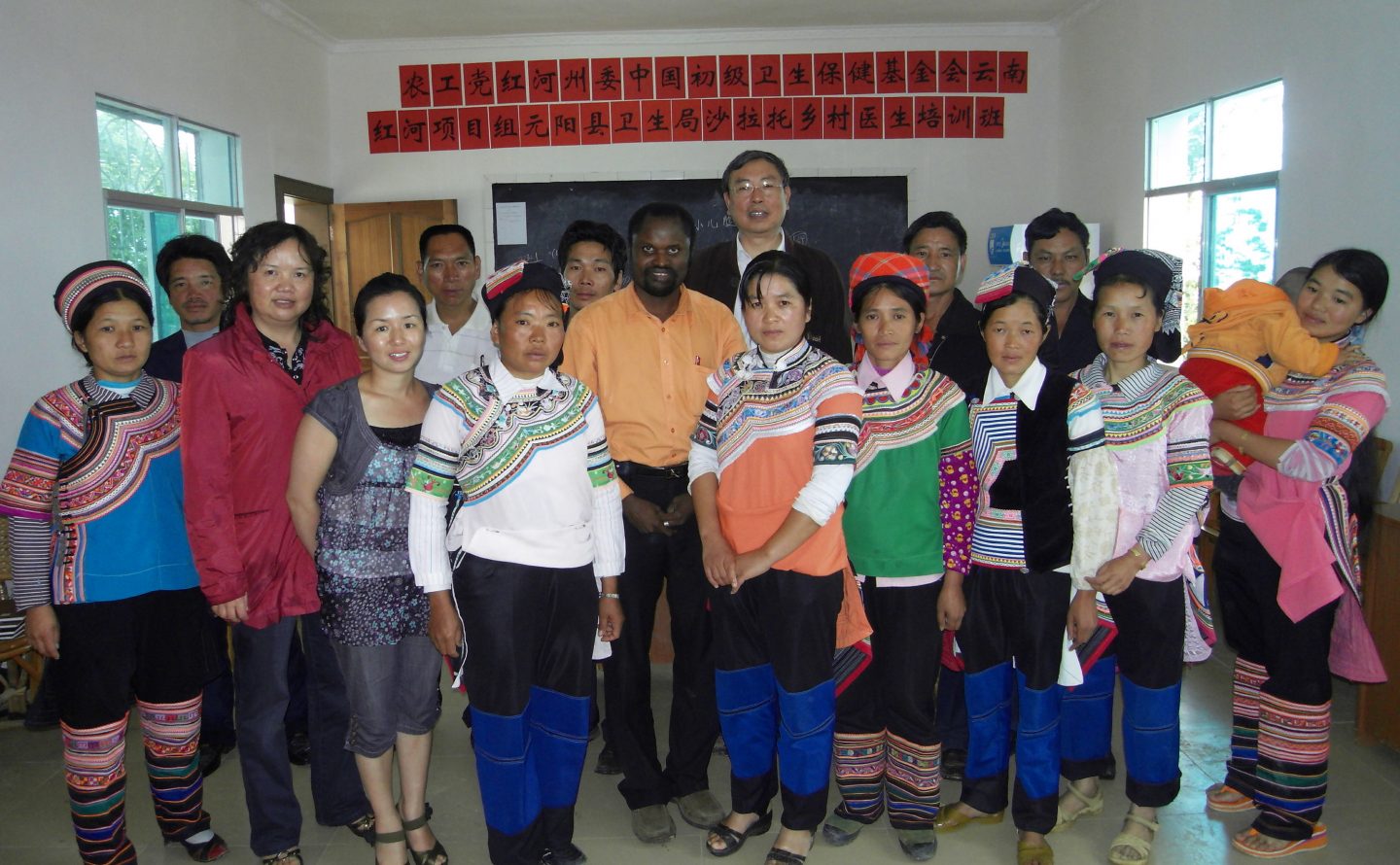
Dr Diarra was voted the winner of Tianjin TV’s 2013 Ten Foreigners Touching the Heart of China awards. He is dedicated to improving the health conditions of local residents in remote regions where access to advanced medical care is limited. Photo courtesy of Dr Diarra Boubacar.
He lives by James 2:18: “Show me your faith without deeds and I will show you my faith by what I do.”
“I am a doctor, but first and foremost, I am a follower of Christ.
“I believe this conviction adds an essential dimension to my understanding of the ethics of medicine.”
One day, he hopes to be able to set up a centre for Chinese medicine in Africa to facilitate the interaction and study of native medicines. But for now, he is content to stay in China where God has called him.
Dr Diarra Boubacar was the medical consultant for The Dao of Healing: Christian Perspectives on Chinese Medicine. The book can be purchased here.
We are an independent, non-profit organisation that relies on the generosity of our readers, such as yourself, to continue serving the kingdom. Every dollar donated goes directly back into our editorial coverage.
Would you consider partnering with us in our kingdom work by supporting us financially, either as a one-off donation, or a recurring pledge?
Support Salt&Light
